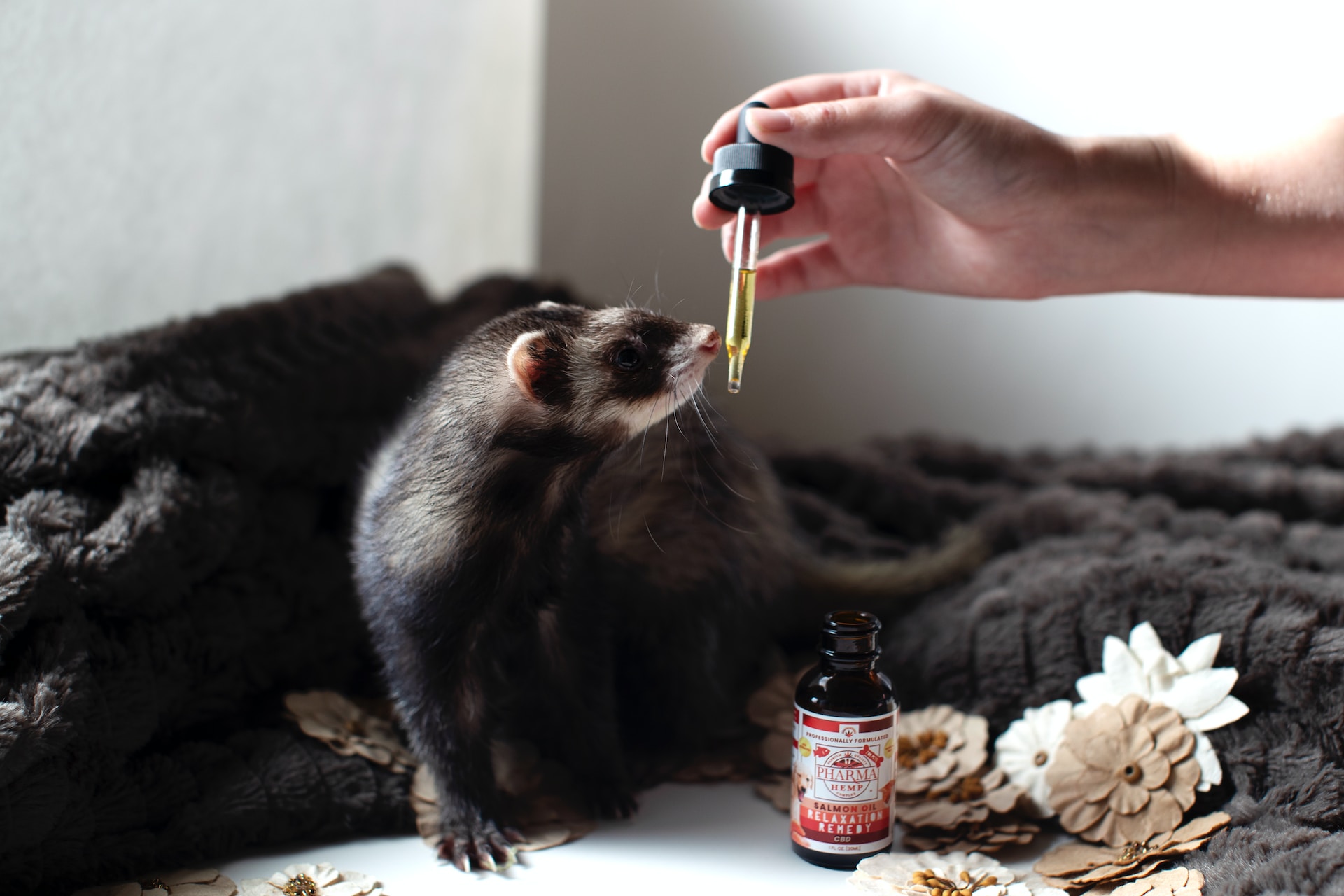Welcoming a domestic ferret into your home is an exciting and rewarding experience, but it comes with a set of unique responsibilities. These playful and affectionate creatures require specific care to ensure they lead happy and healthy lives as part of your family. In this comprehensive guide, we’ll delve into the essential aspects of caring for a domestic ferret, covering everything from their dietary needs to grooming routines, medical care, and the importance of creating an enriching environment for these curious and social pets.
Preparing Your Home for a Ferret
- Ferret-Proofing Your Space: Before bringing a ferret home, it’s crucial to ferret-proof your living space. These curious critters love to explore, and their small size allows them to squeeze into tight spaces. Ensure all potential hiding spots, nooks, and crannies are secure, and use baby gates to limit access to certain areas.
- Creating a Safe Habitat: Ferrets thrive in a secure and comfortable environment. Provide a spacious cage with multiple levels, ramps, and hiding spots. Include soft bedding for their comfort, and ensure the cage is placed in a quiet, draft-free area away from direct sunlight.
Understanding Ferret Nutrition
- High-Quality Ferret Food: A well-balanced and protein-rich diet is essential for a ferret’s health. Invest in high-quality ferret food that meets their specific nutritional requirements. Avoid feeding them dog or cat food, as these do not provide the necessary nutrients for ferrets.
- Regular Feeding Schedule: Establish a consistent feeding schedule for your ferret. Most ferrets benefit from being fed two to four times a day. Fresh water should always be available, and it’s advisable to monitor their food intake to ensure they are eating regularly.
Grooming and Hygiene
- Bathing: Ferrets do not require frequent baths, but occasional grooming is essential. Use a ferret-specific shampoo and ensure the water is at a comfortable temperature. Be gentle, as over-bathing can strip their skin of natural oils.
- Nail Clipping: Keep your ferret’s nails trimmed to prevent discomfort and potential injuries. Use ferret nail clippers and be cautious not to cut into the quick. If unsure, seek guidance from a veterinarian or a professional groomer.
- Ear Cleaning: Ferrets are prone to earwax buildup, so regular ear cleaning is vital. Use a ferret-safe ear cleaner and a cotton ball or swab to gently clean their ears. Avoid using cotton swabs too deeply to prevent injury.
Veterinary Care and Health Monitoring
- Regular Vet Check-Ups: Establish a relationship with a veterinarian experienced in ferret care. Regular check-ups are essential for monitoring their health, addressing any concerns promptly, and keeping vaccinations up-to-date.
- Spaying/Neutering: Most ferrets are spayed or neutered to prevent unwanted behaviors and potential health issues. This procedure is typically done early in a ferret’s life, and consulting with a vet will help you determine the best timing.
- Vigilant Health Monitoring: Keep a close eye on your ferret’s behavior, eating habits, and litter box usage. Any sudden changes, lethargy, or signs of distress should prompt a visit to the veterinarian. Early detection of health issues is crucial for effective treatment.
Providing Mental and Physical Stimulation
- Interactive Play: Ferrets are highly social and intelligent animals. Engage in interactive playtime with toys such as tunnels, balls, and interactive puzzles. This not only provides physical exercise but also stimulates their minds.
- Exploration and Hideouts: Create an enriching environment by allowing your ferret to explore different areas of your home. Provide hiding spots, tunnels, and climbing opportunities within a safe and supervised setting.
- Social Interaction: Ferrets thrive on social interaction, both with their human family members and fellow ferrets. Spend quality time playing, cuddling, and bonding with your ferret to strengthen your relationship and meet their need for companionship.
Hygiene and Litter Box Training
- Litter Training: Ferrets can be litter trained, simplifying the cleaning process. Use a low-sided litter box and fill it with a pelleted litter designed for ferrets. Place the litter box in a quiet, accessible location.
- Cleaning the Living Space: Regularly clean and sanitize your ferret’s living space. Remove waste, wash bedding, and clean toys to maintain a hygienic environment. This prevents odors and reduces the risk of illness.
Integrating Ferrets into a Multi-Pet Household
- Gradual Introductions: Introducing ferrets to other pets, such as cats or dogs, should be a gradual process. Allow them to become familiar with each other’s scents before direct interaction. Always supervise interactions to ensure safety.
- Ensuring Safety: Keep a watchful eye on interactions between ferrets and other pets. While some pets may get along well, others may require careful supervision. Ensure that all animals in the household are comfortable and safe.
A Lifetime of Companionship
Caring for a domestic ferret is a commitment that involves providing love, attention, and meeting their unique needs. By understanding their behaviors, dietary requirements, and the importance of regular veterinary care, you can create a fulfilling and joyful life for your ferret. With proper grooming, a stimulating environment, and a vigilant approach to their health, you’ll be rewarded with the delightful companionship of a domestic ferret—a furry friend that will bring joy, laughter, and endless love to your home for years to come.

